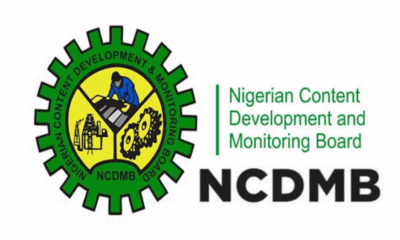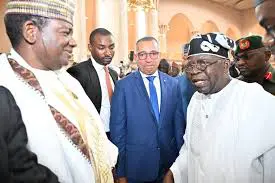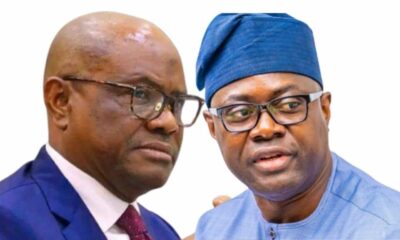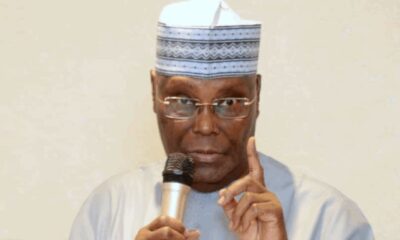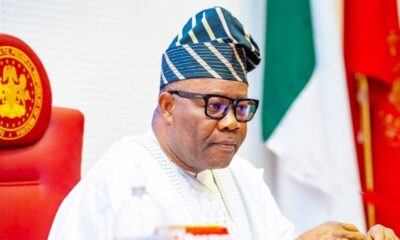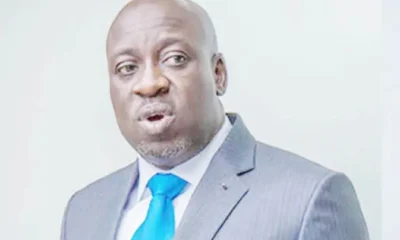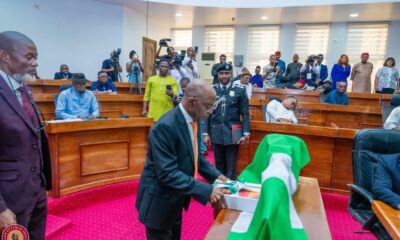Business
‘Audit NNPC, increase health taxes, VAT’ — World Bank advises FG on reforms, fiscal discipline

The World Bank has advised Nigeria to consolidate its recent macroeconomic reforms by maintaining a tight monetary and fiscal discipline.
This, the bank said, would deepen foreign exchange (FX) market flexibility and ensure full transparency in public finance management.
The multilateral lender issued the advisory in its latest Nigeria Development Update (NDU) report released on Wednesday.
The bank said Nigeria has achieved “substantial stabilisation progress” from reforms in petrol subsidy removal and FX unification, but warned that the gains could be eroded without stronger policy coordination and transparency.
The Washington-based institution asked the Central Bank of Nigeria (CBN) to maintain positive real interest rates and refrain from monetising fiscal deficits.
“Increase reliance on the MPR to control naira liquidity, implemented with open market operations (OMOs) and standing facilities,” the World Bank said.
“Narrow the corridor (SDF/SLF) around the MPR. Gradually reduce the cash reserve ratio (CRR) to support financial sector development. Reduce market segmentation between OMOs and NTBS.
“Publish monthly statements of assets and liabilities, in particular to indicate no monetisation of fiscal deficits.
“Maintain naira flexibility as a shock absorber. Progressively lower remaining constraints to deepen FX market (e.g. holding long net open positions).
“Implement and communicate a clear exchange rate policy and a systematic framework for FX intervention, outlining when and how the CBN may buy or sell FX”.
‘INCREASE HEALTH TAXES, VAT RATE’
On fiscal policy, the report recommended several measures to enhance revenue and reduce wasteful spending.
The World Bank asked Nigeria to improve tax administration by implementing “e-invoicing and strengthening tax audits”.
“Adopt modern property tax frameworks at the subnational level,” the report reads.
“Increase health taxes and gradually increase the VAT rate in line with ECOWAS. Increase fiscal governance, clear the backlog of FGN audits for 2022–2024.”
The global bank further urged the federal government to adopt realistic budget assumptions, cut non-essential spending such as vehicle purchases and trainings, and reduce ad-hoc deductions at FAAC to ensure subnational fiscal stability.
On structural reforms, the Bank recommended that the government retain deregulation of the petroleum sector, ensure a competitive petrol market.
The institution also advised the federal government to finance outstanding electricity subsidy arrears while moving to a cost-reflective tariff regime supported by a universal subsidy for the poorest households.
Other proposed recommendations include conducting a forensic audit of the Nigeria National Petroleum Company (NNPC) Limited and adopting new procurement and audit laws.(The Cable)
-

 Business19 hours ago
Business19 hours agoOil Industry Contracting: NCDMB Issues NCEC Guidance Notes, Rules Out Transfer of Certificate
-

 News19 hours ago
News19 hours agoKnocks For Tinubu For Attending Wedding Without Visiting Kwara Massacre Victims
-

 Politics19 hours ago
Politics19 hours agoMakinde, Wike camps set for showdown at PDP HQ today
-

 Business19 hours ago
Business19 hours ago‘Should have been sold before rehabilitation’ — Atiku asks NNPC to discontinue proposed refinery deal
-

 News19 hours ago
News19 hours agoElectoral Act standoff: Senate calls emergency plenary as protests loom
-

 News19 hours ago
News19 hours agoInsecurity: ADC Spokesman Taunts Tinubu, Says Nigeria Has No Gov’t
-

 News19 hours ago
News19 hours agoAbia blames typo after allocating N210m for photocopier in 2026 budget
-

 Politics19 hours ago
Politics19 hours agoElectoral Act: NLC Threatens Mass Action Over Senate’s Rejection Of Real-Time Transmission Of Results



